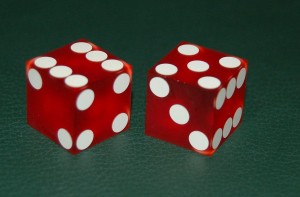Does the Arkansas Lottery Plan to Market to College Kids?
 The Arkansas Lottery Commission voted yesterday to authorize monitor games despite objections from Arkansas lawmakers. That was a very controversial move, but another decision by the commission is receiving much less attention: The decision to pursue marketing in conjunction with Arkansas’ colleges and universities.
The Arkansas Lottery Commission voted yesterday to authorize monitor games despite objections from Arkansas lawmakers. That was a very controversial move, but another decision by the commission is receiving much less attention: The decision to pursue marketing in conjunction with Arkansas’ colleges and universities.
According to the Associated Press, Lottery Director Bishop Woosley says the lottery might sell Arkansas Razorback-themed lottery tickets and advertise the lottery at college sporting events. For a lottery that rolled out more gambling in its first two months than other states did in five years, a Razorback scratch-off ticket may not sound like much; the bigger question is does this vote allow the Arkansas Lottery to do more “marketing” on college campuses than Woosley let on?
Arkansas Code Section 23-115-402 (b) states:
This chapter does not prohibit the [lottery] commission from designating certain of its agents and employees to sell or give tickets or shares directly to the public.
Arkansas Code Section 23-115-601 Subdivision (f)(5)(B)(vii)(b) states:
[T]his section does not preclude the [lottery] commission from selling or giving away tickets or shares for promotional purposes.
Finally, concerning lottery ticket retailers, Arkansas Code Section 23-115-402 (c) states:
Subject to prior approval by the commission, retailers may give away tickets or shares as a means of promoting goods or services to customers or prospective customers.
So under the enabling legislation that established the Arkansas Lottery Commission in 2009, the commission can sell or give away lottery tickets for promotional purposes, and retailers may (with the commission’s blessing) give away tickets as well.
This raises a question: Does the Arkansas Lottery Commission plan to “promote” the Arkansas Lottery by giving away free lottery tickets on college campuses? (more…)

 On Wednesday the Arkansas Lottery Commission voted to approve “
On Wednesday the Arkansas Lottery Commission voted to approve “